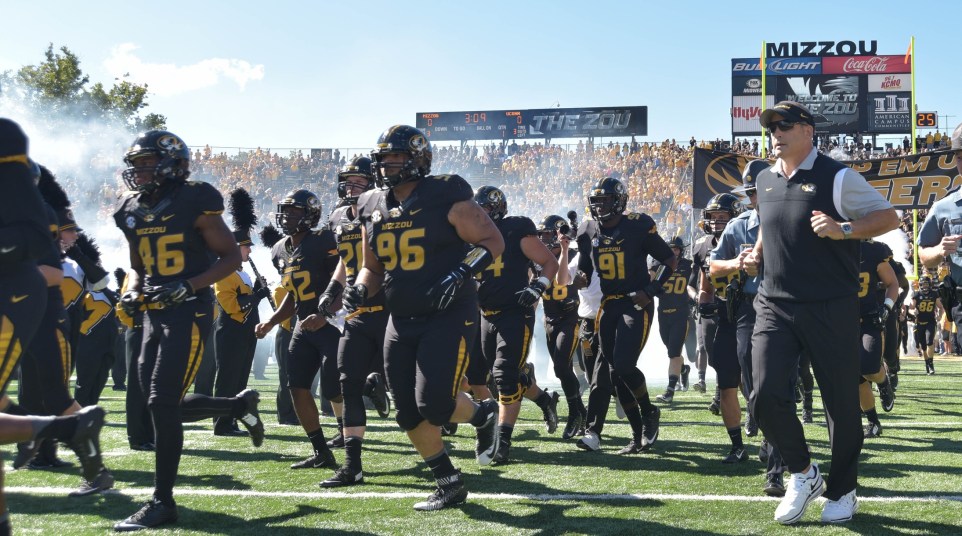
What's the effect of the Mizzou walkout?
SEC football players get full scholarships, including tuition, classroom expenses, room and board, spending money and summer school tuition.
They eat in special cafeterias with better food than other students. They get free tutoring. They spend much of their time in luxurious, football-only facilities. Many use their degrees, their playing experience and/or their acquired name recognition to get lucrative jobs. And yes, a few go on to play for riches in the NFL.
But should football players have the power to oust a university president, which they apparently did at the University of Missouri? That’s the question we’re left with after Mizzou players successfully forced the resignation of Tim Wolfe.
THE AFTERMATH:
- Comprehensive list of demands from Mizzou protesters
- Team holds meeting, university president releases official statement
- Boycott wouldn’t happen if Mizzou was 9-0, says player
- Former linebacker says players ‘lack responsibility and respect’ due to boycott
Granted, football players don’t get just compensation for their hours of training and practice or injuries suffered that could affect their health throughout their lifetime. Not in the SEC, where schools generate tens of millions from their football programs.
But the universities know the impact their big-money football programs can have on an entire institution. That was demonstrated at Missouri, where the threat of a football players boycott determined the outcome of a non-football controversy.
What started out as a graduate student’s hunger strike generating little impact or attention outside the state turned into a national story when Mizzou football players jumped on board Saturday with the following tweet:
“The athletes of color on the University of Missouri football team truly believe ‘Injustice Anywhere is a threat to Justice Everywhere. “We will no longer participate in any football related activities until President Tim Wolfe resigns or is removed due to his negligence toward marginalized students’ experience. WE ARE UNITED!!!!!”
When Wolfe resigned under pressure Monday morning, it set an important (scary?) precedent for donors, administrators, faculty, alumni at schools with big time football programs. The power and value (monetary and social) of football on all campus issues can’t be ignored.
Once the core of the football team announced its boycott, Wolfe’s fate was sealed.
Mizzou stood to lose $1 million just for forfeiting Saturday’s game against BYU. But the negative publicity and the effect on the football program would be much more costly. Plus, a racially tinged boycott of the football team could cause irreparable harm to the university and the football program.
At Missouri, which is the lower half of the SEC in football revenues, the football program cleared $15.4 million in 2012-13 — before a surge in attendance accompanying Mizzou’s back-to-back SEC East titles.
For the players, Wolfe’s resignation is a huge victory, showing just how much power and influence their performances at the stadium on fall Saturdays have off the field as well.
Wolfe may have been insensitive and dismissive to minority students who wanted to discuss and propose changes due to racial incidents. He did little or nothing after receiving complaints about racial slurs yelled at black students and incidents where menacing, degrading symbols and graffiti targeting minority students were displayed. Black students said some recent cutbacks by Wolfe disproportionally affected them.
On Saturday, Wolfe acknowledged he should have responded to calls for meetings by minority students. He admitted that when members of the protest group later supported by football players blocked Wolfe’s car during Mizzou’s homecoming parade four weeks ago in an attempt to speak with him, his refusal to get out of his car “seemed like I did not care.”
Following the players’ boycott, a group of university faculty members joined the movement, threatening a “teach in,” giving Wolfe added reason to resign.
